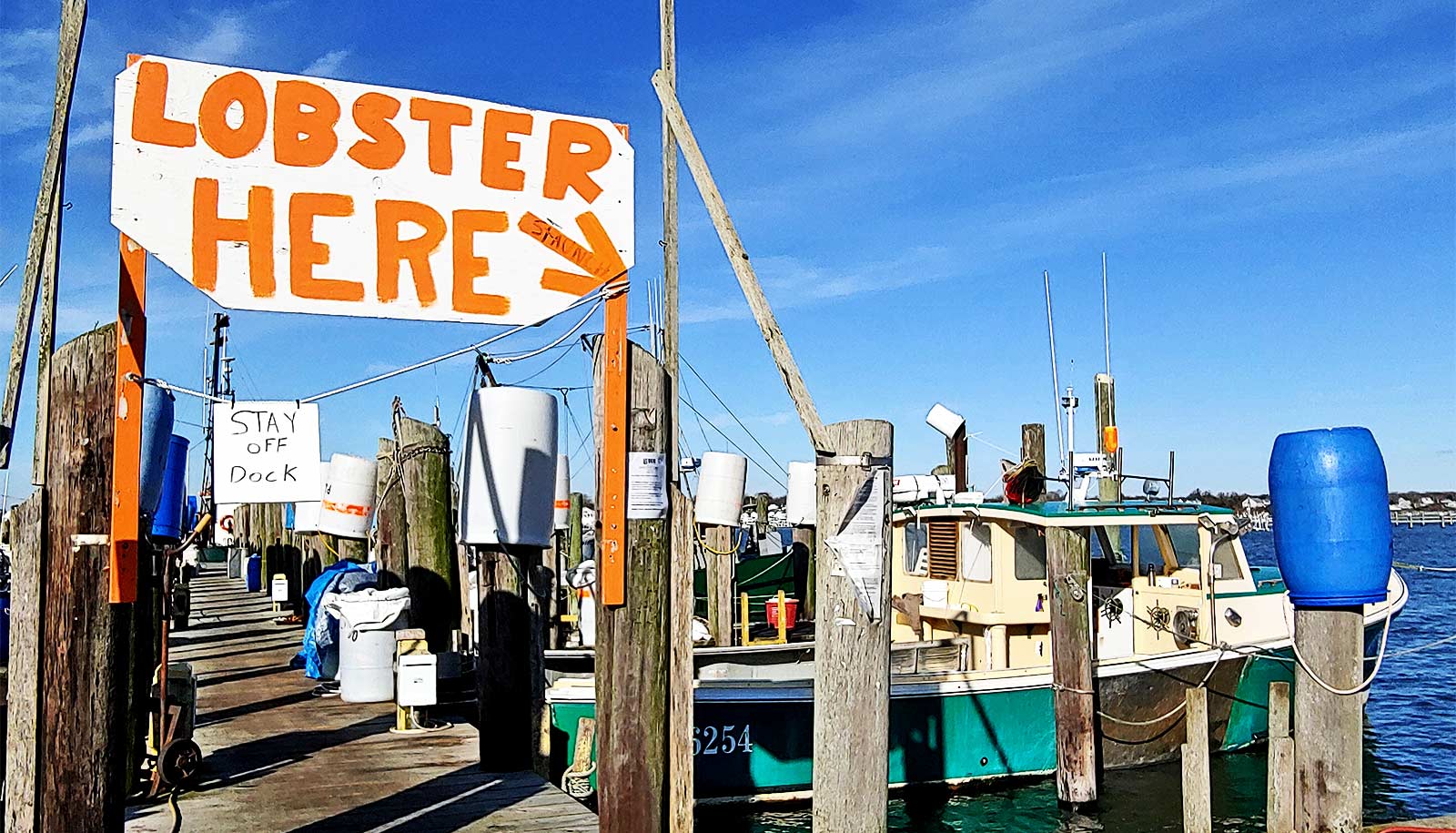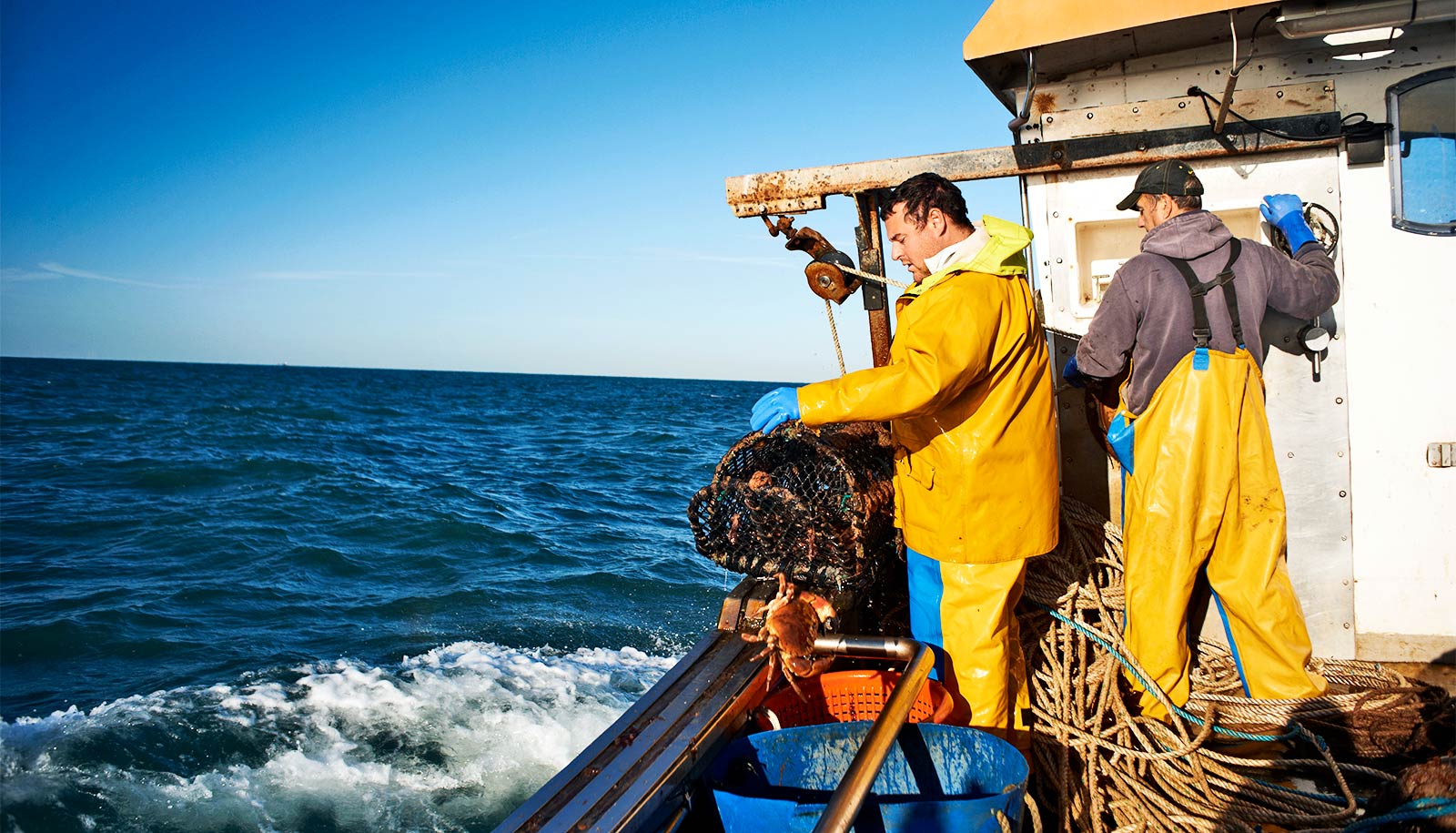With restaurants and supply chains disrupted due to the coronavirus pandemic, two-fifths of commercial fishers from Maine to North Carolina did not go fishing earlier this year, a new study shows.
Of those who kept fishing, nearly all reported a decline in income compared with previous years, according to the study in PLOS ONE.
The study, which covers March to June and included 258 fishers, also examined data on fish landings and found that the catch for some species, such as squid and scallops, decreased compared with previous years. The catch for other species, such as black sea bass and haddock, was on par with or higher than previous years, suggesting that many fishermen fished as much as they had been before the pandemic, while earning less income.
“They may have kept fishing to pay their bills or crew, or to maintain their livelihoods or their quotas until markets rebound,” says main author Sarah Lindley Smith, a postdoctoral associate in the human ecology department in the School of Environmental and Biological Sciences at Rutgers University-New Brunswick. “Most of the fishermen who stopped fishing during the early months of the pandemic planned to resume fishing instead of leaving the industry.”
The pandemic has slammed the fishing industry due to the loss of restaurant sales, disruptions in export markets, and a decline in seafood prices. Before the pandemic, 70% of seafood spending in the United States took place in restaurants, the study notes.
But restaurant sales were severely reduced or in some cases lost altogether during stay-at-home orders, when restaurants closed or only offered limited take-out. Sales were slow to return as stay-at-home orders lifted and restaurants remained closed or were limited to outdoor dining or serving at reduced capacity.
The supply chain also endured significant disruptions as a result of the loss of European and Asian export markets, as well as social distancing requirements in processing facilities, at seafood dealers, at retailers, and in seafood transportation.
The survey found that fishermen adopted a number of strategies to adapt to the pandemic, including selling their catch directly to consumers, participating in residential delivery programs, and community-supported fishery programs or switching the species of fish they target.
Fishermen are often characterized as resilient, a view the survey findings support. Still, resilience comes at a significant cost in terms of earnings. And while fishermen have taken a big hit economically, that has not necessarily led to reduced pressure on fish stocks. As fisheries managers consider how to best support the fishing industry moving forward, the survey findings will help them understand the short-term impacts of the pandemic.
“While we found that many fishermen kept fishing in the short-term, it will be necessary to study the longer-term impacts of the pandemic on the industry to understand whether this trend will continue,” Smith says.
Additional research is ongoing to assess the repercussions of COVID-19 on fishing households, including impacts on well-being and mental health.
“The pandemic is just the latest threat for a sector coping with climatic pressures, overfishing, the legacies of oil spills and extreme events, and fishery management policies,” says coauthor Victoria Ramenzoni, an assistant professor in the human ecology department. “It is important to isolate these responses to identify the true cost of adaptation.”
Additional coauthors are from the University of Wisconsin-Madison and Rutgers. The survey is part of a NOAA-funded project, co-led by Ramenzoni and Jensen, to study the adaptation strategies of Northeast fishermen to climate change.
Source: Rutgers University



